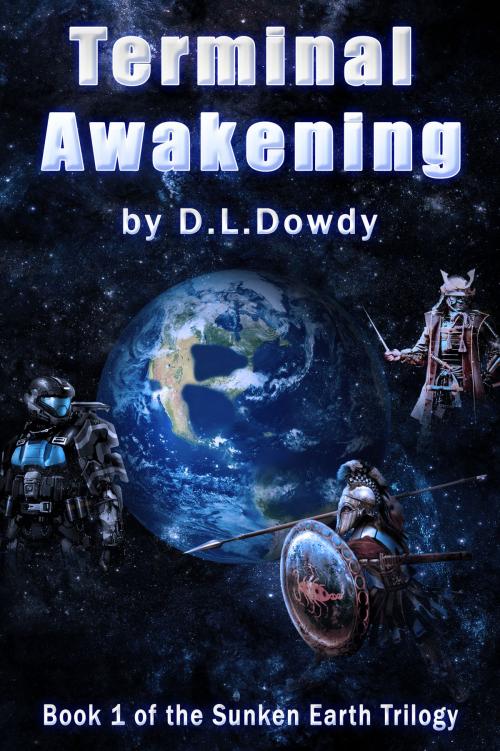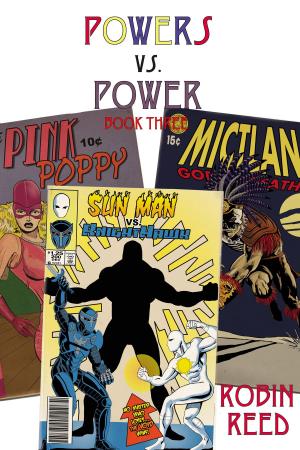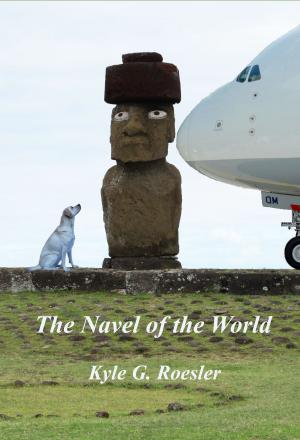Terminal Awakening
Science Fiction & Fantasy, Science Fiction, Adventure, Fiction & Literature, Action Suspense| Author: | Dean Dowdy | ISBN: | 9781310095498 |
| Publisher: | Dean Dowdy | Publication: | May 14, 2014 |
| Imprint: | Smashwords Edition | Language: | English |
| Author: | Dean Dowdy |
| ISBN: | 9781310095498 |
| Publisher: | Dean Dowdy |
| Publication: | May 14, 2014 |
| Imprint: | Smashwords Edition |
| Language: | English |
Why do Alexander’s retreating Greeks torture an Indian prince in 326 B.C. while a rotund dandy walks the banks of New York’s Fifth Avenue Canal in 2148 A.D., looking furtively at the spire of St Patrick’s cathedral jutting majestically out of the water. And what a British archeologist can possibly think when he breaks into the tomb of procurator Julius Gaius Alpinus’s daughter, in present day Caistor St Edmunds, only to discover that a fresco of his own daughter, down to an identifying scar, adorns its interior, sealed in 62 A.D. What do all the above have to do with the desperate family running for their lives in Chile, hunted by the Hungry Hunters, monster protectors of the Climatic Restitution Ecological Reserves.
Terminal Awakening, Book 1 of the Sunken Earth Trilogy, is an escape story; escape from a future earth, climatically destroyed, on its way to becoming another Venus. The key to saving the future is altering the past. Four young friends, team members in an online fantasy game, realize that they have been targeted by a game character called the GameMaster, a putrid, decaying corpse with a malicious streak. Increasingly, the threat moves from the game into reality where they find out that they are the four “prototype” time travelers on a mission to save the earth. Before they do that, though, they must first save themselves from some pretty tough adversaries led by a most unlikely entity.
An epic adventure set in six time periods: the present, the past (326 B.C. with Alexander the Great, 61 A.D. during Boudicca’s Revolt against the Romans, 1569 with Daimyo Hideyoshi Toyotomi, and 1879, running with Jesse James) and the future, the sunken earth of 2148.
You can either decipher what's really going on by reading on or you can peruse the Chrononomicon Appendix and Glossary first to gain a rock solid understanding. You can also read and refer to the Chrononomicon as you go on.
Why do Alexander’s retreating Greeks torture an Indian prince in 326 B.C. while a rotund dandy walks the banks of New York’s Fifth Avenue Canal in 2148 A.D., looking furtively at the spire of St Patrick’s cathedral jutting majestically out of the water. And what a British archeologist can possibly think when he breaks into the tomb of procurator Julius Gaius Alpinus’s daughter, in present day Caistor St Edmunds, only to discover that a fresco of his own daughter, down to an identifying scar, adorns its interior, sealed in 62 A.D. What do all the above have to do with the desperate family running for their lives in Chile, hunted by the Hungry Hunters, monster protectors of the Climatic Restitution Ecological Reserves.
Terminal Awakening, Book 1 of the Sunken Earth Trilogy, is an escape story; escape from a future earth, climatically destroyed, on its way to becoming another Venus. The key to saving the future is altering the past. Four young friends, team members in an online fantasy game, realize that they have been targeted by a game character called the GameMaster, a putrid, decaying corpse with a malicious streak. Increasingly, the threat moves from the game into reality where they find out that they are the four “prototype” time travelers on a mission to save the earth. Before they do that, though, they must first save themselves from some pretty tough adversaries led by a most unlikely entity.
An epic adventure set in six time periods: the present, the past (326 B.C. with Alexander the Great, 61 A.D. during Boudicca’s Revolt against the Romans, 1569 with Daimyo Hideyoshi Toyotomi, and 1879, running with Jesse James) and the future, the sunken earth of 2148.
You can either decipher what's really going on by reading on or you can peruse the Chrononomicon Appendix and Glossary first to gain a rock solid understanding. You can also read and refer to the Chrononomicon as you go on.















